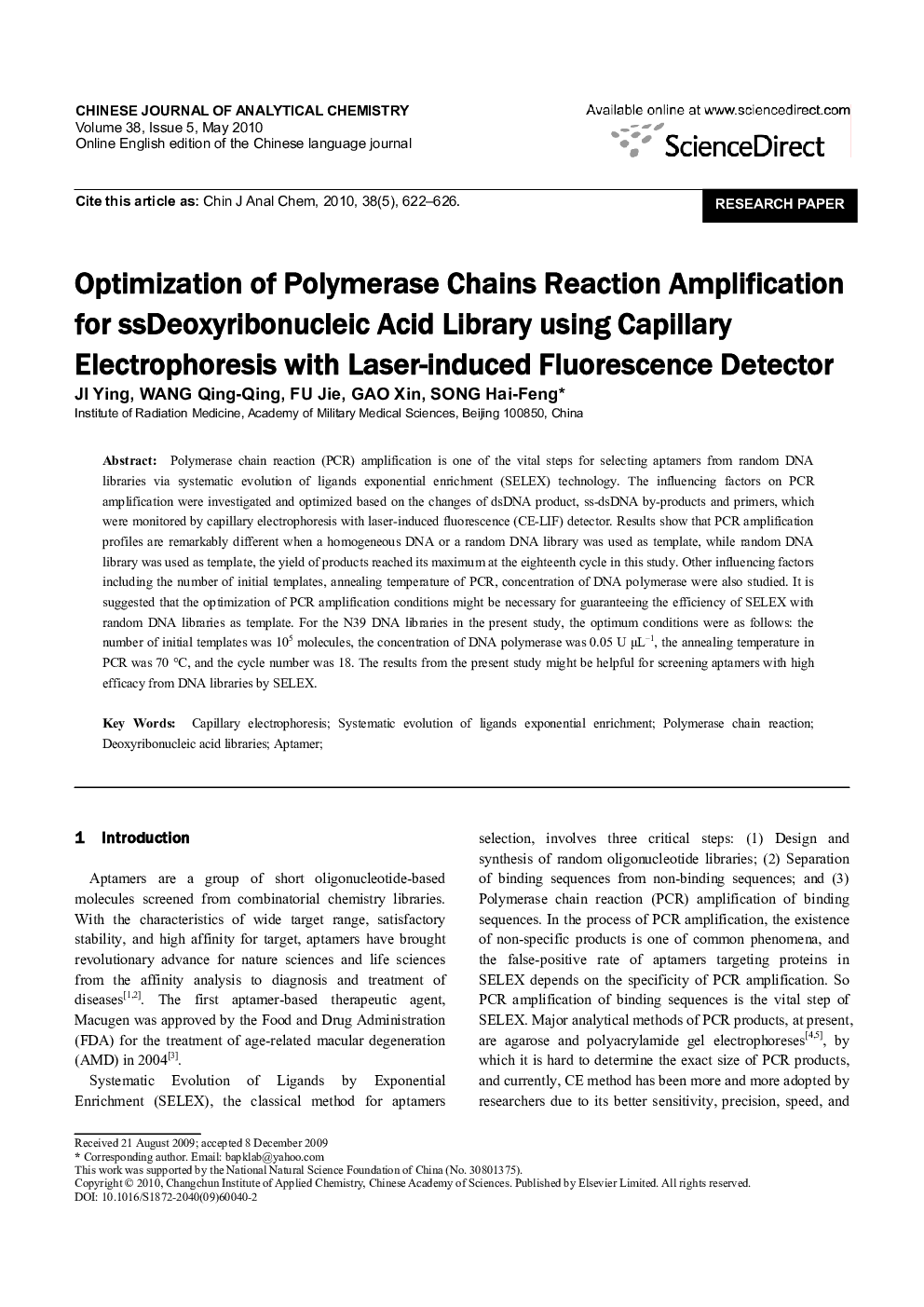| Article ID | Journal | Published Year | Pages | File Type |
|---|---|---|---|---|
| 1181982 | Chinese Journal of Analytical Chemistry | 2010 | 5 Pages |
Polymerase chain reaction (PCR) amplification is one of the vital steps for selecting aptamers from random DNA libraries via systematic evolution of ligands exponential enrichment (SELEX) technology. The influencing factors on PCR amplification were investigated and optimized based on the changes of dsDNA product, ss-dsDNA by-products and primers, which were monitored by capillary electrophoresis with laser-induced fluorescence (CE-LIF) detector. Results show that PCR amplification profiles are remarkably different when a homogeneous DNA or a random DNA library was used as template, while random DNA library was used as template, the yield of products reached its maximum at the eighteenth cycle in this study. Other influencing factors including the number of initial templates, annealing temperature of PCR, concentration of DNA polymerase were also studied. It is suggested that the optimization of PCR amplification conditions might be necessary for guaranteeing the efficiency of SELEX with random DNA libraries as template. For the N39 DNA libraries in the present study, the optimum conditions were as follows: the number of initial templates was 105 molecules, the concentration of DNA polymerase was 0.05 U μL−1, the annealing temperature in PCR was 70°C, and the cycle number was 18. The results from the present study might be helpful for screening aptamers with high efficacy from DNA libraries by SELEX.
